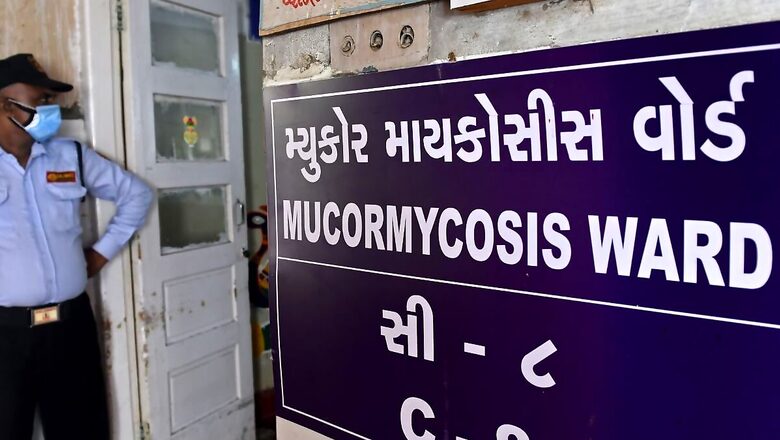
views
Death rates of patients hospitalised for fungal infections associated with Covid-19 were significantly higher compared to fungal infections not linked with the disease. An analysis by the CDC showed that hospitalisation rates involving fungal infection significantly increased in 2019-21.
According to the analysis of a large US healthcare services database by the Centers for Disease Control and Prevention (CDC), these rates were primarily driven by hospitalisations of patients with Covid-associated fungal infection. The viral disease is a substantial risk factor for certain fungal infections, especially those caused by invasive molds. The chances of contracting a fungal infection is high during Covid because of the disease related immune system dysregulation and immunosuppressive therapies, such as corticosteroids or other immunomodulatory medications.
In a study titled ‘Increased hospitalizations involving fungal infections during Covid-19 pandemic, United States, January 2020-December 2021’ published by CDC in July found that the mortality rate for in-hospital Covid-associated fungal infections was 48.5 percent compared to 12.3 percent for fungal infections not related to Covid.
During 2020-2021, a total of 5,288 (13.4 percent) out of 39,423 fungal hospitalisations were Covid-associated, as per the database of the US health agency.
Fungal infections more in men, median patient age 63
Covid-related fungal infections with the highest mortality rates involved aspergillosis (57.6 percent), invasive candidiasis (55.4 percent), mucormycosis (44.7 percent), and unspecified mycoses (59 percent), the analysis noted.
The study also noted longer hospital stays, higher ICU admission rates, more invasive mechanical ventilation (IMV) receipts, and more deaths were generally observed for hospitalisations caused by Covid-associated fungal infections than for non-Covid fungal infections, regardless of the specific fungal pathogens involved.
The analysis showed that median patient age was 63 years for Covid-associated hospitalisations versus 61 years for non-Covid hospitalisations. It also found that more male patients were hospitalised with Covid-related fungal infections.
The authors of the study advised that “findings emphasise the importance of maintaining a high index of clinical suspicion for fungal infections in patients at high risk, including those with Covid-19, and the need for increased fungal disease surveillance to detect and evaluate emerging trends”.
“As the Covid-19 pandemic evolves, and to increase preparedness for future infectious disease outbreaks, comprehensive public health surveillance for fungal diseases is needed to characterise disease epidemiology and guide efforts to prevent illness and death,” it said.




















Comments
0 comment